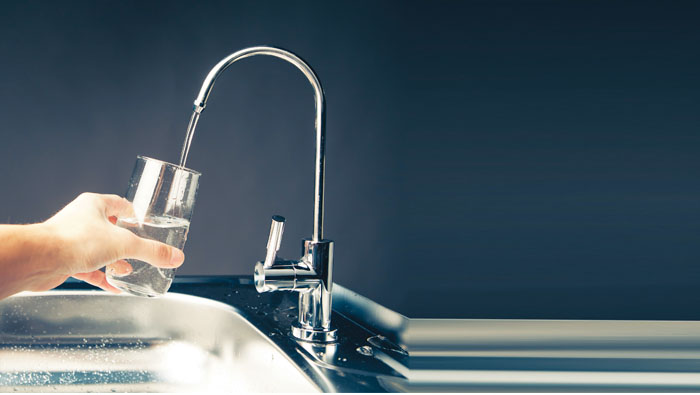
Muscat: Drinking Oman’s tap water is safe, and is unlikely to cause any harm to those who drink it, a senior official from the Sultanate’s water regulatory and monitoring authority has said.
The news comes after water supervision authorities in Oman organised their latest series of food and water tests all across the country.
Speaking to the Times of Oman, a representative from the Public Authority for Electricity and Water (Diam) said: “Drinking tap water is safe."
“Water samples are taken before and after the desalination process to make sure that water is safe for drinking. Diam also takes water samples from homes on a regular basis. There are specialists at the authority who are working on providing safe water for people. It sometimes depends on the quality of pipes and water tanks, as some pipes are exposed to rust, and water tanks need regular cleaning from the dirt.”
The latest testing exercise from the Omani Ministry of Regional Municipality and Water Resources saw them look at nearly 400 samples of food and water, which were taken from schools in Ibri by the Directorate General of Regional Municipality and Water Resources, over the last three months.
Water samples
During the period from May to August, approximately 392 food and water samples were examined by the Ibri, Yanqul and Dhank municipalities. “A total of 194 food samples were tested, out of which 29 were found to be non-conforming,” said an official from the Ministry of Regional Municipality and Water Resources.
“On the other hand, 40 samples of water were found to be non-conforming, out of a total of 198 water samples.”
He added: “The inspections were done in order to ensure that establishments comply with the health requirements and to apply quality standards in the food industry.”
The aim of the food and water test is to detect the level of safety and compliance with health standards and to ensure its suitability for human consumption.
The ministry’s laboratory technicians carried out various visits to public and private schools in the governorate, in order to raise awareness among specialists of the need to perform water and food tests, and in addition, the laboratory received samples from these institutions.
The quality of Oman’s water was also reflected in a United Nations global report on water quality that came out in June 2017.
Jointly published by the World Health Organisation (WHO) and UNICEF, the report, titled “Progress on Drinking Water, Sanitation and Hygiene: 2017 Update and Sustainable Development Goal Baselines” said that 97 per cent of the water in Oman was free from contamination. In addition, the report said that 100 per cent of the population had access to clean water. Some 91 per cent of them received it through pipes, while a further nine per cent got it from tankers that regularly delivered fresh water to homes.
In this context, Dr Tedros Adhanom Ghebreyesus, Director-General of the WHO, said: “Safe water, sanitation and hygiene at home should not be a privilege of only those who are rich or live in urban centres. These are some of the most basic requirements for human health, and all countries have a responsibility to ensure that everyone can access them.”
UNICEF Executive Director Anthony Lake added: “Safe water, effective sanitation and hygiene are critical to the health of every child and every community, and thus, are essential to building stronger, healthier, and more equitable societies. As we improve these services in the most disadvantaged communities and for the most disadvantaged children today, we give them a fairer chance at a better tomorrow.”
The United Nations is actively working on bringing clean water to people all across the world, so that people can enjoy sustainable access to drinking water, sanitation and hygiene (WASH) by 2030, as part of its Sustainable Development Goals, through the analysis, monitoring and dissemination of information on the setup employed by countries to ensure their people get access to that water. Titled GLAAS (Global Analysis and Assessment of Sanitation and Drinking Water), the initiative is spearheaded by WHO and UN Water.